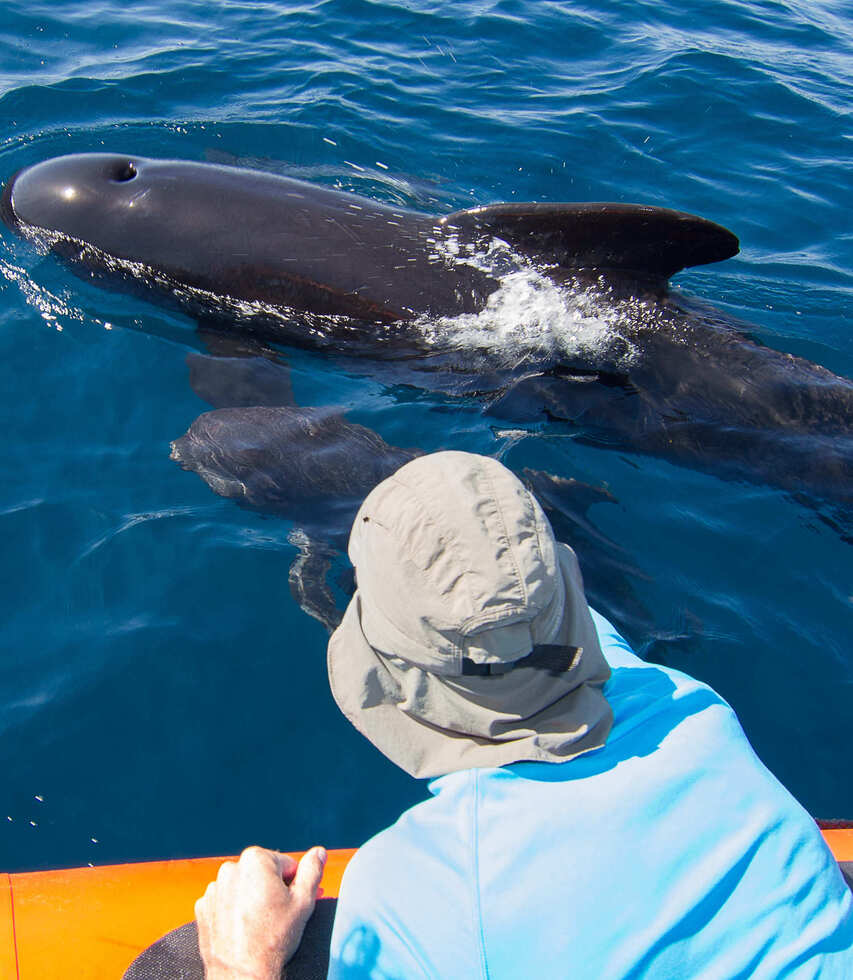
Pilote Whales
Globicephala melas
Pilot whales are a species of oceanic dolphins known for their large, bulbous heads and robust bodies. These social creatures are often found in close-knit family groups, making them a fascinating subject of study.
In the waters of the Strait of Gibraltar, a fascinating phenomenon unfolds beneath the surface: pilot whales, also known as common pilot whales, have permanently established their home in this region. Unlike other species of migratory whales, these magnificent cetaceans are year-round residents in these waters.
The Strait of Gibraltar provides pilot whales with an ideal environment to live and thrive. Its deep, nutrient-rich waters provide abundant food for these marine creatures, while its complex underwater topography offers them refuge and protection.
These intelligent marine mammals form closely-knit social groups, often consisting of extended families led by adult females. Throughout the seasons, they engage in activities such as hunting, caring for their young, and social interaction within their groups.
The constant presence of pilot whales in the Strait of Gibraltar is not only a testament to the richness and biodiversity of this region but also a reminder of the importance of protecting and conserving these marine habitats. Human activity, such as maritime traffic and pollution, can pose threats to the population of them and their natural environment.
Social Structures
Pilot whales exhibit strong social bonds and are often seen in cohesive groups, engaging in synchronized swimming and vocal communication.
Intelligent and Curious
These creatures are known for their intelligence, curiosity, and playful behaviors, captivating the attention of observers and researchers.
Diet and Feeding Habits
Pilot whales are efficient hunters, mainly consuming fish, and they have been observed preying on squid and octopus as well.
